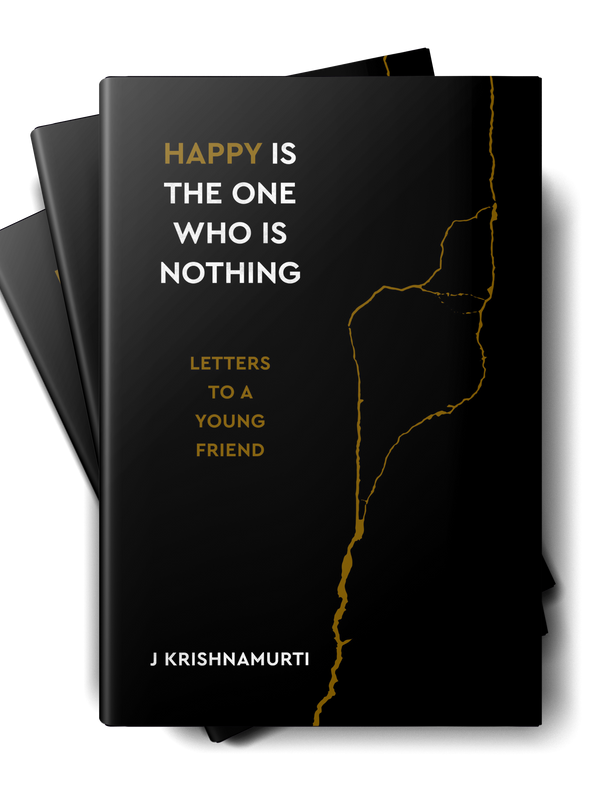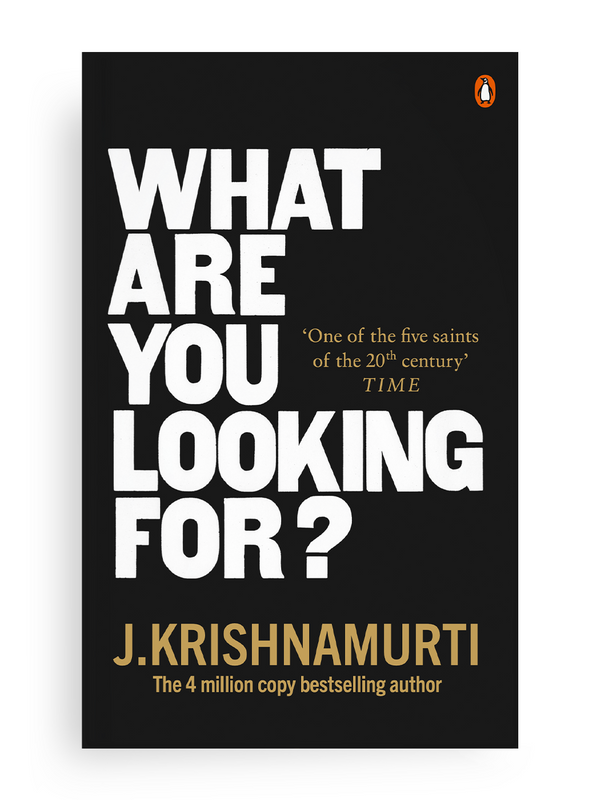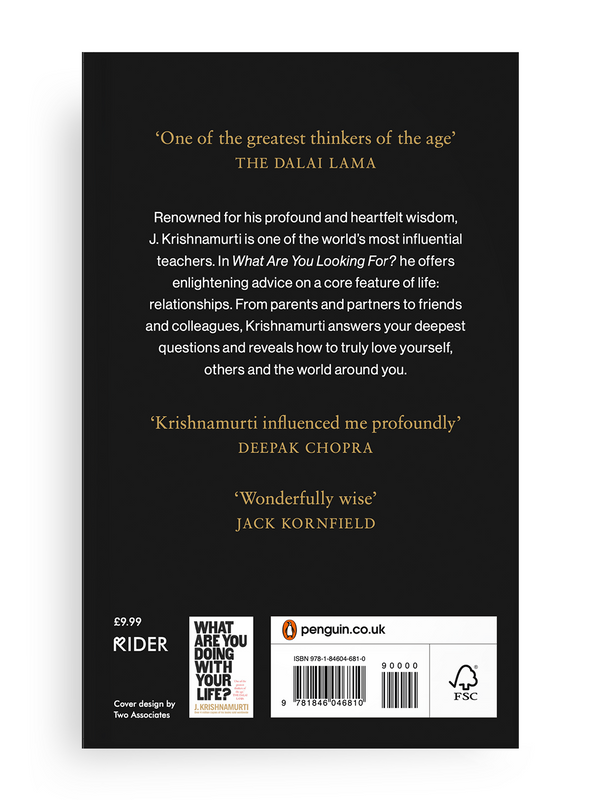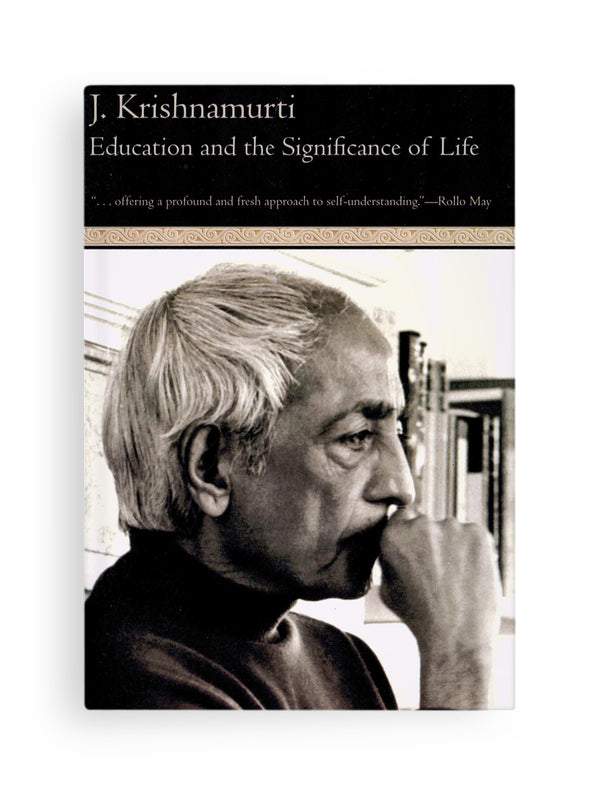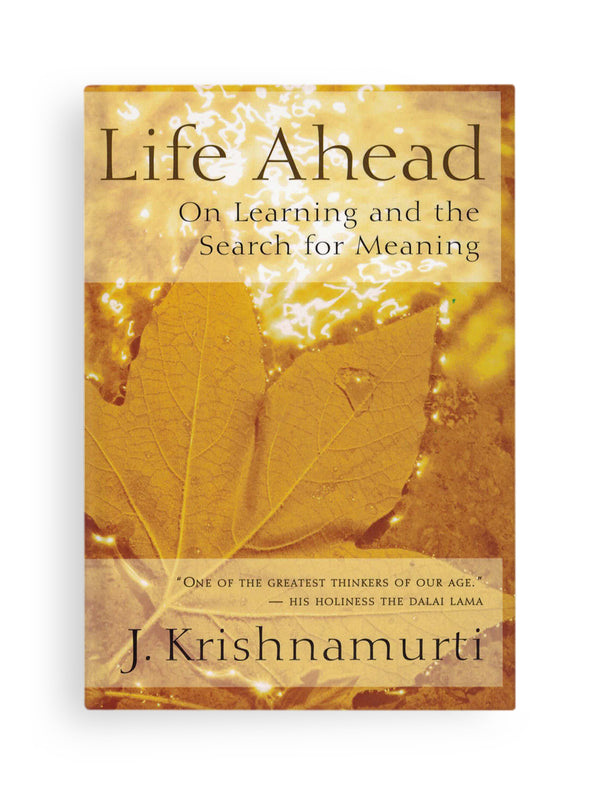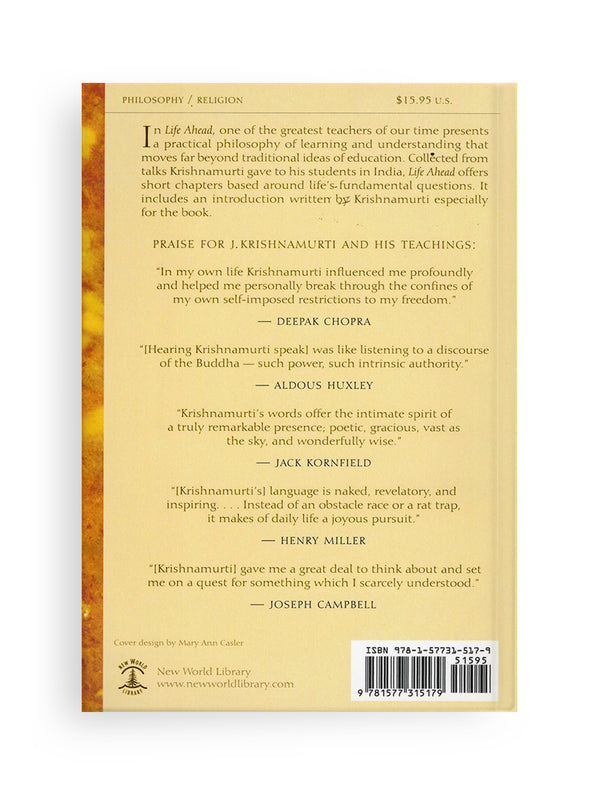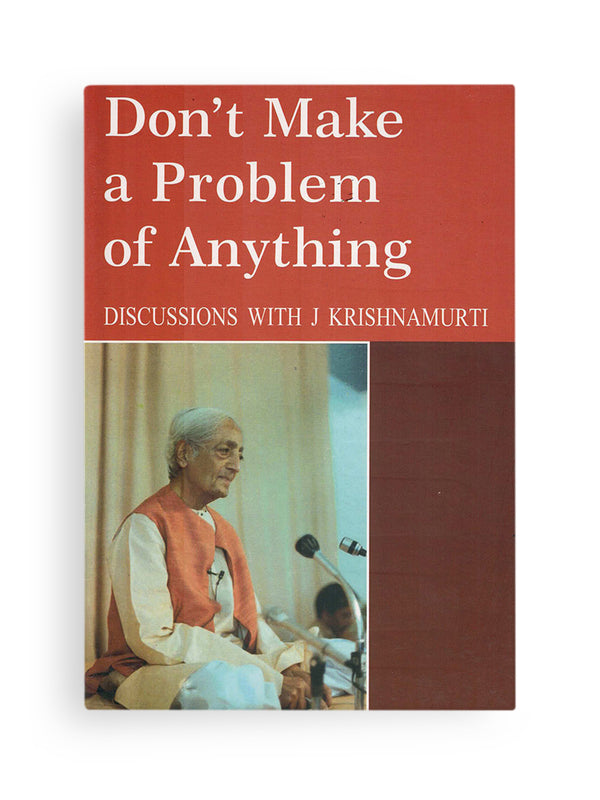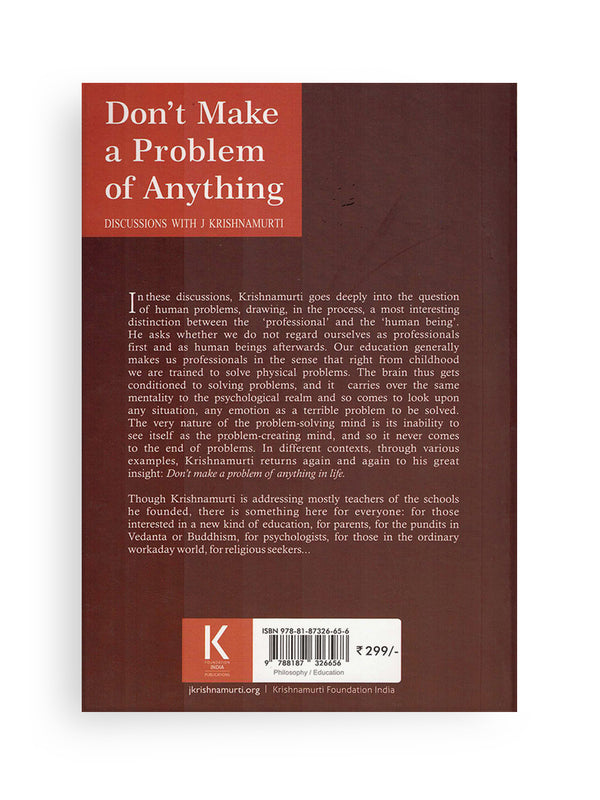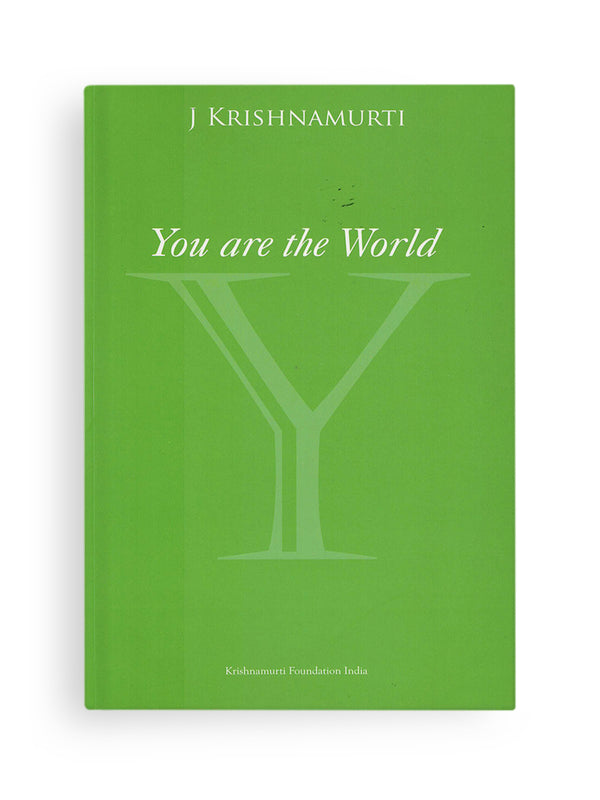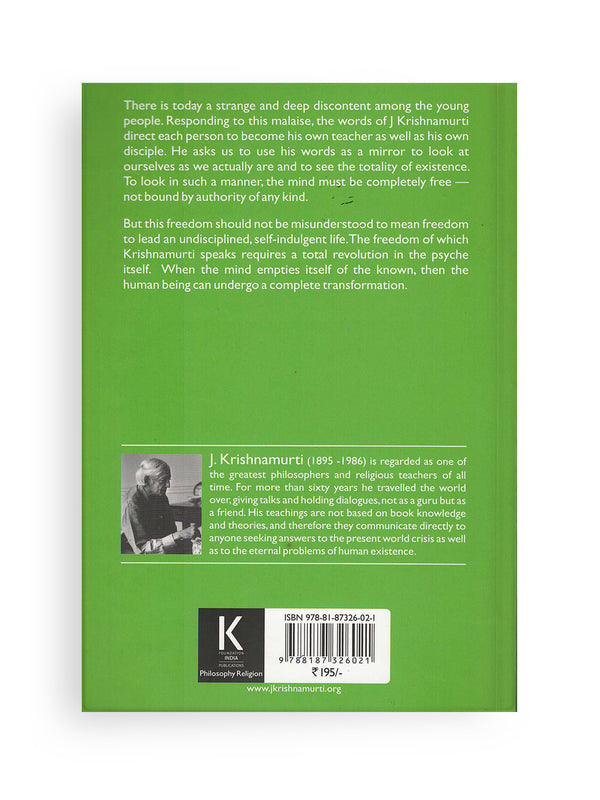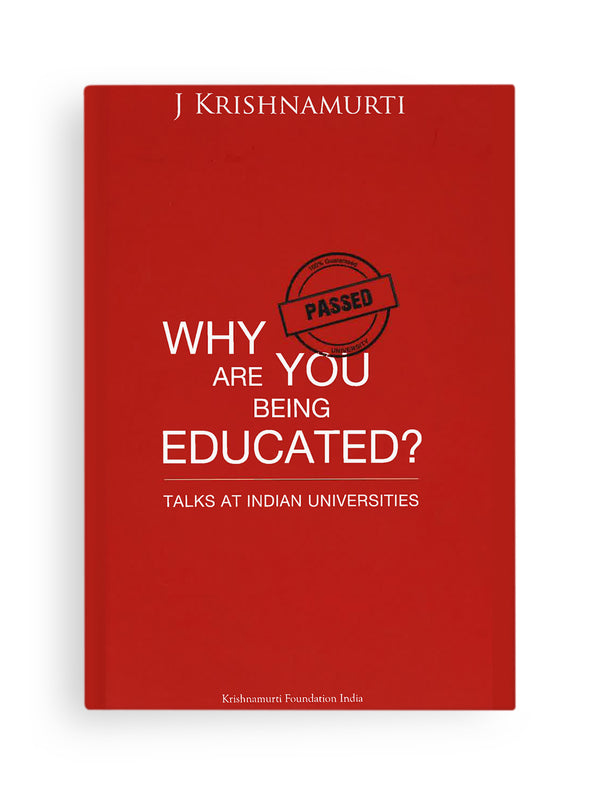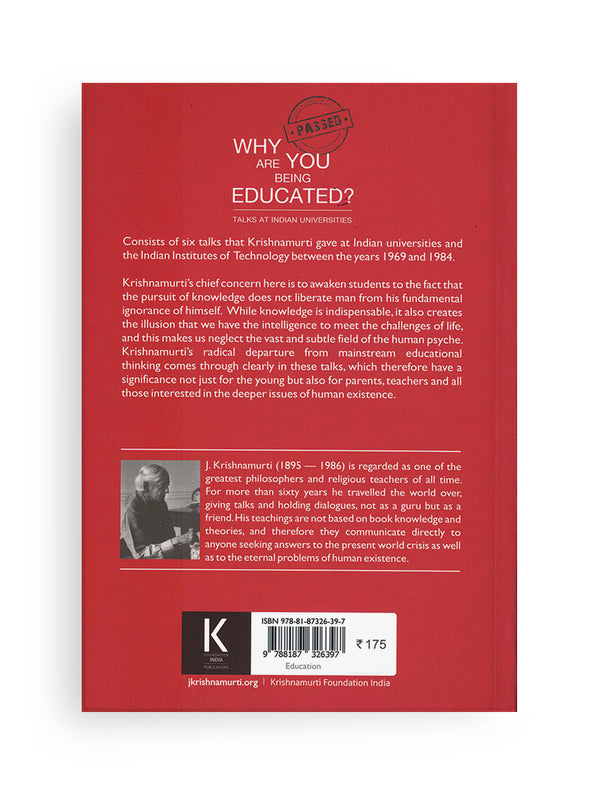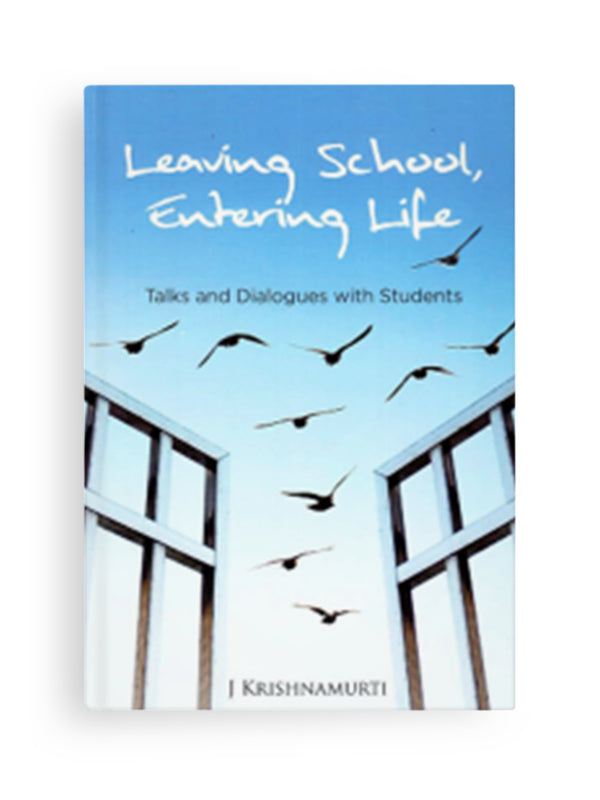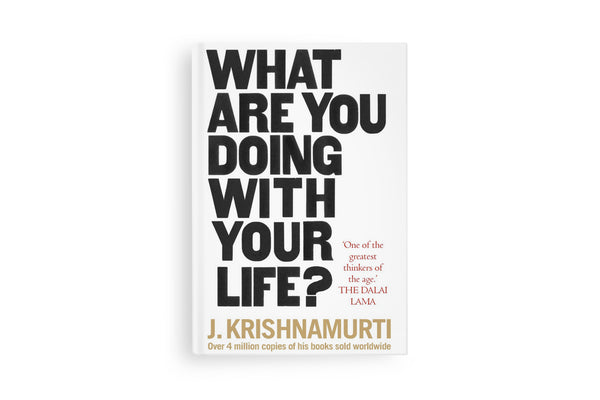
‘One of the greatest thinkers of the age’ The Dalai Lama
'One of the five saints of the 20th century' - TIME magazine
J. Krishnamurti (1895-1986) was a renowned spiritual teacher whose lectures and writings have inspired thousands.
What Are You Doing With Your Life? offers Krishnamurti’s inspiring wisdom on many of life’s hurdles from relationships and love, to anxiety and loneliness.
- Paperback
- 230 Pages
Subjects Included
Section One - Your Self and Your Life
- What Are You
- What Are You Doing With Your Life?
- Thought, The Thinker, and The Prison of The Self
- Insight, Intelligence, and The Revolution of Your Life
- Escape; Entertainment; Pleasure
- Why Should We Change?
- What Is The Purpose of Life?
Section Two: Self Knowledge - The Key to Freedom
- Fear
- Anger and Violence
- Boredom and Interest
- Self-Pity; Sorrow; Suffering
- Jealousy; Possessiveness; Envy
- Desire and Longing
- Self-Esteem: Success and Failure
- Loneliness; Depression; Confusion
- Self-Ending - Not Self Improvement - Ends Suffering
Section Three: Education, Work, Money
- What Is Education?
- Comparison, Competition, or Cooperation?
- Work: How Do You Decide?
- What Is The Besis of Right Action?
Section Four: Relationships
- What Is Relationship?
- Love; Desire; Sex; Dependency
- Family And Society: Relationship or Exclusion?
- Nature And Earth
- Marriage: Love and Sex
- Passion
- Truth; God; Death
- Meditation Is Attention
Customer Reviews
Jiddu Krishnamurti lived from 1895 to 1986, and is regarded as one of the greatest philosophical and spiritual figures of the twentieth century. Krishnamurti claimed no allegiance to any caste, nationality or religion and was bound by no tradition. His purpose was to set humankind unconditionally free from the destructive limitations of conditioned mind. For nearly sixty years he traveled the world and spoke spontaneously to large audiences until the end of his life in 1986 at the age of ninety. He had no permanent home, but when not traveling, he often stayed in Ojai, California, Brockwood Park, England, and in Chennai, India. In his talks, he pointed out to people the need to transform themselves through self knowledge, by being aware of the subtleties of their thoughts and feelings in daily life, and how this movement can be observed through the mirror of relationship.

